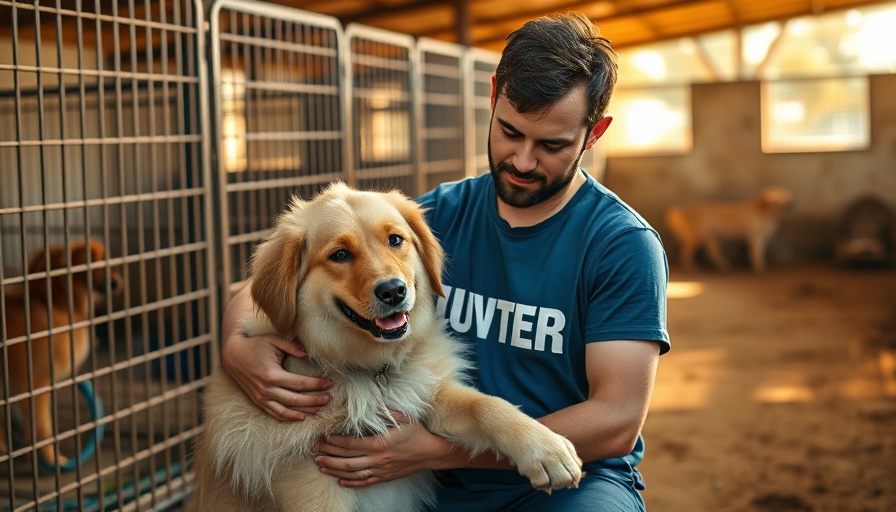
Understanding the Connection Between Owner Confidence and Dog Behavior
Owning a dog comes with its unique challenges, especially when behavior issues arise. Many dog owners find themselves questioning their capabilities as pet parents. They may wonder, "I am a good dog owner and a confident person, so why does my dog have behavior problems?" This fundamental question highlights a prevalent myth in the dog training community: that a dog’s problematic behavior solely reflects the owner's emotional state and confidence. However, delving deeper reveals that the dynamics between owners and their canine companions are complex and multifaceted.
The Impact of Owner’s Emotions on Their Dogs
It’s important to recognize that dogs are incredibly perceptive of their owners' emotional states. When an owner is stressed or anxious, it can trigger similar feelings in their dogs, leading to increased reactivity or fearfulness in various situations. For example, a dog that senses their owner’s reluctance during stressful environments may display aggressive behavior out of anxiety or fear. This is not to say that dogs are mere mirrors of their owners; they possess their own unique personalities and respond to the world around them based on their genetics and past experiences.
Debunking Common Myths About Dog Behavior
Many myths surrounding dog training contribute to owners feeling overwhelmed and disheartened. The notion that simply displaying confidence will eliminate problems like leash reactivity or separation anxiety is a gross oversimplification. Dogs learn and adjust through structured training and behavioral modifications, not merely through the emotional state of their owners. For instance, creating a predictable routine and using positive reinforcement are crucial for building a trusting relationship and addressing negative behaviors effectively.
Strategies for Building Owner Confidence
To effectively help their dogs, owners should focus on specific strategies to improve their confidence while also addressing their dog’s needs. Here are a few actionable insights:
- Seek Education: Understanding canine behavior through reputable courses or training can empower owners to make informed decisions.
- Practice Positive Reinforcement: Consistently using positive reinforcement helps both the dog and the owner develop a positive outlook towards training sessions.
- Set Realistic Expectations: Owners must recognize that progress may be slow and may involve setbacks. Patience is pivotal.
- Communicate Clearly: Owners should strive to communicate their expectations to their dogs clearly, creating a solid framework for learning.
- Consult Professionals: Engaging with certified dog behaviorists can provide tailored strategies that meet the specific needs of the dog and owner.
Recognizing and Responding to Stress in Dogs
Recognizing the signs of stress and over-arousal in dogs is crucial for effective training. Outwardly calm behaviors may still mask underlying stress, which can lead to behavioral issues. Owners should become adept at identifying their dog’s body language and emotional cues, allowing them to intervene and adapt training approaches accordingly. This proactive response builds a stronger bond and assures the dog that they are safe in their owner’s care.
Creating Positive Training Environments
Establishing a controlled and familiar environment for training sessions lays the groundwork for success. Dogs that are overstimulated or placed in challenging situations too soon may become overwhelmed, leading to behavioral regressions. Instead, by designing training sessions that cater to small victories, owners can help build both their dog's skills and their own confidence in managing behavior-related challenges.
Conclusion: Empowering the Owner-Dog Relationship
The journey of addressing behavioral problems in dogs requires commitment from both the owner and the dog. While it’s easy to feel defeated when faced with challenges, understanding the intrinsic complexities of dog behavior can empower owners to foster a healthy, trusting relationship. Thus, the task at hand is not just fixing a dog’s behavior but also building confidence within owners to navigate these challenges effectively.
In this evolving journey, nurturing your knowledge and skills is vital. Consider engaging with canine behavior specialists or participating in this community to share experiences while learning about effective training strategies for your beloved companions. As we continue to unravel the layers of these relationships, remember that your journey matters too! Feel free to subscribe to our newsletter for more insights into dog care and behavior training.
 Add Row
Add Row  Add
Add 




Write A Comment